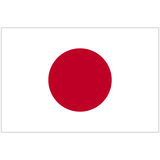
Mongolia awaits star players in 2022 World Cup qualifying
ULAANBAATAR, Mongolia (AP) — European glamor teams such as Manchester United and Real Madrid do not visit Mongolia on lucrative preseason tours, but this oft-forgotten Asian soccer outpost is about to get a taste of the big time on the qualifying road to the 2022 World Cup.
Soccer is far from the most popular sport in Mongolia but that may start to change after the country was drawn Wednesday with its first-ever appearance in the second round of World Cup qualifying with matches against Japan.
That could mean a visit from Shinji Kagawa on March 31 and other players on the side who compete in the top European leagues.
Kagawa is one of the few public signs of the sport on the congested streets of Ulaanbaatar, home to around half of the country's population of three million. The Borussia Dortmund player beams down from billboards that advertise the partnership between the German club and Mongolian Airlines.
"To play a big team like Japan will be very meaningful for Mongolia," national team coach Michael Weiss told The Associated Press. "Football is not a very big thing in Mongolia though there is interest and it is becoming more fashionable."
"Such a game will help promote the sport in a country without genuine professional clubs. More interest and then sponsors come on board then so does the government and then there is progress."
Mongolia, ranked 187th in the world, edged past Brunei in the first round in June to earn a place in Group F in the second round and eight much-needed competitive games. The climax will come against Japan. The Samurai Blue, ranked 28th, reached the last 16 of the 2018 World Cup.
They will likely face sub-zero temperatures even at the end of March. The harsh Mongolian climate sees long winters with the mercury ranging from between -20 Celsius (-4 Fahrenheit) to -40C (-40F) and does not lend itself to soccer. Archery, horse racing and wrestling are all more popular.
"Of course, the climate makes it hard but even in terms of facilities and general conditions we are far behind the rest of Asia," Weiss said. "I am not talking about Japan, China or South Korea but places like Bangladesh and Laos —these are the countries we have to compete with."
In order to do so, the other six games in the group are as important as the meetings with Japan. The second stage kicks off on Sept. 5 with a home game with Myanmar before meetings with Tajikistan and Kyrgyzstan.
Had Mongolia lost to Brunei in June then there would be no group stage and no competitive games at all until 2023.
"We would have been out of the picture for a long time if we had lost to Brunei," said Weiss, a veteran manager from Germany who was appointed to the Mongolian role in 2017. "That would have been very bad for us. We need these games so we can get the players together and we can help them develop."
Only the eight group winners and the four best second-place teams progress to the next stage where Asia's four automatic World Cup spots are up for grabs. That is the target for Japan, but for Mongolia the situation is a little more modest.
"We know that we are not going to be one of the 12 teams that go to the next stage but this is the start of a process for us," Weiss said. "We have put the train on the tracks and now we can start moving forward."
____
More AP soccer: https://apnews.com/apf-Soccer and https://twitter.com/AP_Sports
